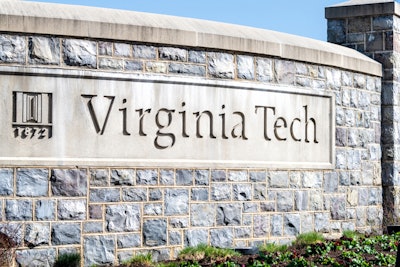Collaborations between Virginia Tech and historically Black colleges and universities (HBCUs) or other minority-serving institutions (MSIs) have led to 15 research projects supported by grant funding.
This effort is one of several seed investment programs by Virginia Tech’s Institute for Critical Technology and Applied Science (ICTAS).to bolster research on campus.
“Seed funding is one of the primary mechanisms we use to allow faculty to pursue new research directions that have incredible potential but might be prohibitively difficult to get off the ground otherwise,” said ICTAS Director Dr. Stefan Duma. “We know that more diverse research teams tend to generate more robust solutions, and our hope is that the collaborations formed through this program go on to yield joint proposals, publications, and other projects that far outlast the term of the original award.”
Each of the 15 projects is a partnership between a Virginia Tech faculty member and a HBCU or MSI colleague, funded by two-year Diversity and Inclusion Seed Investment grants of $10,000 a year to each team. The projects will launch this year.
And another award is being co-funded by Virginia Tech’s Institute for Creativity, Arts, and Technology (ICAT) on top of the seed investment – a total of $40,000 over two years.
“Expenses like travel and materials can be necessary to get a new partnership off the ground, but researchers’ existing federal grants don’t always cover them,” said Chris Tysor, ICTAS diversity and inclusion coordinator and program manager at the Virginia Tech Mid-Atlantic Aviation Partnership,. “This award can fill in the gaps.”
The research projects cover topics such as energy storage, nutrition, food insecurity, liquid fuels, education, artificial intelligence (AI), the humanities, robotics, and diversity, equity, and inclusion (DEI).
Since launching in 2016, the program has grown, with its list of partner schools expanding and new Virginia Tech departments taking part. This year is the first time for California State University Channel Islands, and Virginia Tech’s School of Architecture and Myers-Lawson School of Construction.
“It’s been rewarding to see the program attract faculty from a wider and wider range of disciplines and expand the network of partner universities,” Tysor said. “It tells us that there’s really an appetite for these types of partnerships, and we’re honored to be able to provide the resources that can help make them possible.”














